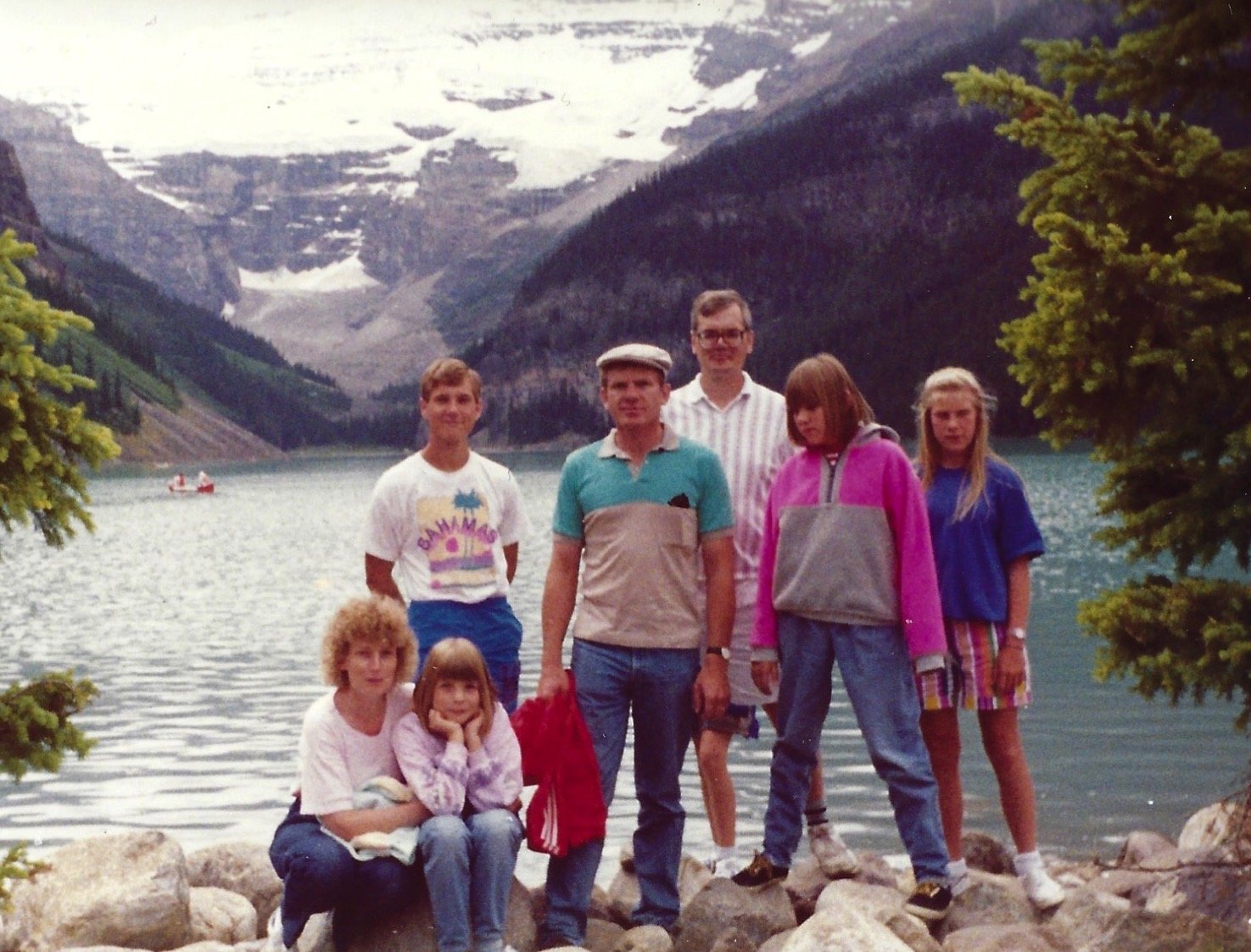I Used to Be a Liar
How a penpal taught me to be myself
Back in the time when cursive writing was still taught in the classroom, I had a seventh grade pen pal named Buffy. She went to the elementary school one town over and we were assigned to one another by our canoodling teachers. She sent me pages of fat, curly letters, and i’s dotted with hearts that I immediately tried to imitate because I thought it looked pretty. Which meant she must be pretty. Which meant I could be pretty too if I could just made my own writing look like hers.
I curled my bangs each morning and set them with the can of ancient hairspray I’d found on my great grandmother’s dresser long after she passed. I would french braid my hair and regularly remind people that ‘No, I did not see Seinfeld last night’ because my family didn’t have a television. We were so evolved.
In my letters to Buffy, I would explain how much more colour was in the world when you weren’t absorbed by a screen. I talked about the huge pink rock against the fence across the highway where I’d sit and read while cows grazed on the other side. I wrote about the light through the trees at the top of the gravel pit where it felt like I could almost see her house. I poured out flowery poetry like I was auditioning for Anne of Green Gables. I asked her if she’d found her Gilbert yet. She didn’t know what a Gilbert was.
At the end of a whole school year it was arranged that we would meet. Our classes would come together for a ‘Fun Day.’ Buffy thought she was meeting a butterfly in a pilgrim dress who sang more than she spoke. What she got was an awkward 12-year-old in rainbow shorts from the Sears catalogue and a plain cotton t-shirt from Stedmans who had no idea how to be the girl she’d been on paper because that girl didn’t exist. I had created a character who was a mixture of Lucy Maud Montgomery language and Buffy-I-don’t-remember-her-last-name heart i’s. I had pretended to be someone else because I was afraid I wasn’t interesting enough.
That’s me on the right at Lake Louise in 1993, wearing the very same out fit I described above.
I could have told her how my mother taught me to make a two-story fort out of old cedar rails or how I had a plastic box buried under the climbing tree where I kept some old coins my aunt gave me. I could have talked about how annoying my sisters were or how 4H was lame or how I wanted to count Jefferey MacMillian’s freckles but he never stayed still long enough. I could have groaned about how Mr. Howard was the worst and that I’d probably watched Bambi and The King and I a billion times because those were the only videos my grandmother had, and how my first job was at the garden centre, filling pots with dirt for 10¢ a flat.
But I didn’t.
I spun a romantic web about cotton aprons and the sound of mice in the forest underbrush.
It was all a lie and I was caught. She looked at me on that ‘Fun Day’ and all she said was, “You’re Alanna?”
But I wasn’t. At least not her version. Liar liar rainbow shorts on fire!
I knew I had to wake up and figure out who I wanted to be, and what I wanted was to be the me I was. I didn’t want to pretend. I just wanted to be.
Much of growing up is learning to stop imitating so you can carve your own path. I chose to play the clarinet because when Lori Summers did it she stuck out her little finger like the Queen having tea and I found it charming. I wanted to be charming too. In eighth grade, I switched to the bass clarinet because I didn’t want Lori Summers to have any more power over my choices. I was becoming a new person. While Lori went on to to wear shiny lipstick and kiss boys in the high school hallways, I started carrying my guitar to school. Still pretentious, but I would also sit alone in my bedroom and play that Yamaha (also from Sears) for hours with a two track recorder I found at the Salvation Army, so it was honest. When everybody else was making boring speeches, I booked the drama room and made my class march to the basement and sit on the amphitheatre stairs in the dark as I played the opening bars of Beethoven’s 5th Symphony on a creepy toy piano—really slow—while I said, “Fear. What. Is. Feeeeeeear?” And then I made them all get down on the floor and draw what they were afraid of on a huge spool of newsprint I rolled from one side of the room to the other. In eleventh grade, I petitioned against denim and refused to wear jeans until well into adulthood because “thrifting was king” and wearing a pair of plaid polyester bellbottoms I found in my friend’s grandmother’s attic was much more compelling than the fast fashion industry. In the thirteenth grade (remember when we had that?) I was voted most likely to be a poet.
I was a loser in the most enchanting and fulfilling way. Discovering that I could find my own path and be my own person without worrying what anybody else thought, and that my happiness didn’t have to be designed by anyone but myself, was a freedom that allowed me to be comfortable with who I was and who I strove to be.
I think about Buffy sometimes. We never continued our friendship because I was a liar and she didn’t care for me and my tall tales. In a funny twist of fate or irony, I became a huge fan of Buffy the Vampire Slayer and named all three of my children after characters from that campy WB show. Every time I say their names aloud I like to think it’s a reminder to all of us to be who we are and love what we love and to never hide our true self.
Great honesty and vulnerability is required to write something compelling. Even a work of fiction requires an incredible honesty. It means putting on your version of polyester pants and jumping into the fire, come what may. A story that comes from a place of truth and security is always more powerful than an imitation of the writer you want to be. So be the writer you are. Continue to craft your talent. Never tell a story that doesn’t come from your own umph.
(And for the record, please keep your polyester away from an open flame.)


